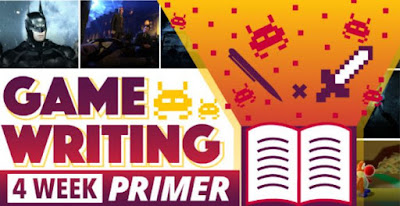Just in time for 2018 GDC, game designer Daniel Harrison and I have compiled a list for the first ever IGDA GDSIG's Play Harder Challenge, patterned after Book Riot's Read Harder Challenge. The gist of this is a list of tasks intended to expand your game playing boundaries, introduce you to new genres or designers, and encourage you to think more about the art game design.
You can try to find one game to fulfill a bunch of challenges or play one game per challenge. The choice is up to you!
This isn't a test. There's no score. But if you do happen to finish all the challenges, do let us know, and maybe we'll get around to making a badge for you :)
IGDA GDSIG's 2018 PLAY HARDER CHALLENGE
- Play a text-based game
- Play a game made by students
- Play a game created during a game jam
- Play an arcade game
- Play a social impact game
- Play a single player AAA game
- Play an old school platformer
- Play a game that's in a museum or art gallery
- Play a nonviolent shooter
- Play a game made by less than 10 people
- Play a tabletop game published in the last 5 years
- Play a game after remapping controller to your non-dominant hand
- Play a twitch game that doesn't involve shooting
- Play a mobile game with on screen joysticks
- Play a location-based game
- Play a VR phone game
- Play a game with asymmetric multiplayer
- Play a game using an emulator
- Play a mobile game that uses the camera
- Play a game that requires user-created content
- Play a cooperative game
- Play a hardcore handheld game













